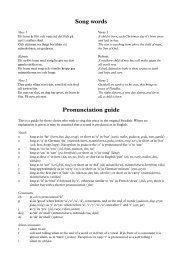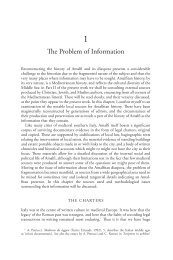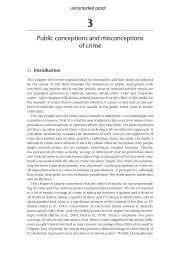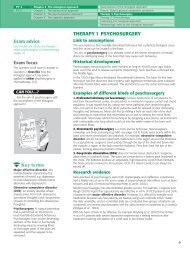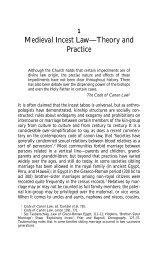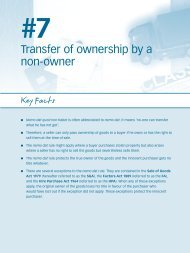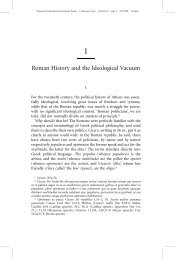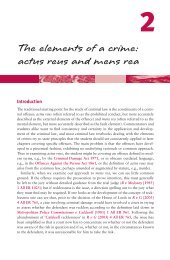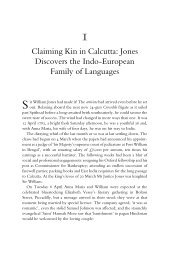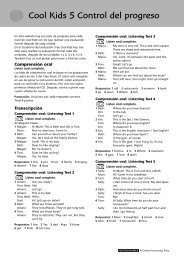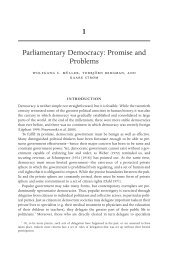Chapter 11 The Tort of Negligence - OED-update - Oxford University ...
Chapter 11 The Tort of Negligence - OED-update - Oxford University ...
Chapter 11 The Tort of Negligence - OED-update - Oxford University ...
Create successful ePaper yourself
Turn your PDF publications into a flip-book with our unique Google optimized e-Paper software.
<strong>Chapter</strong> <strong>11</strong> <strong>The</strong> <strong>Tort</strong> <strong>of</strong> <strong>Negligence</strong> 361<br />
Decision: <strong>The</strong> court awarded the claimant damages since her loss was reasonably foreseeable<br />
and the scene that greeted the claimant when she arrived at the hospital constituted the ‘immediate<br />
aftermath’.<br />
For public policy reasons, it is important to make certain that the duty <strong>of</strong> care, imposed on<br />
defendants, for psychiatric injury caused to secondary victims is restricted within reasonable<br />
confines. <strong>The</strong>re are legal limitations on the claims <strong>of</strong> secondary victims. In the important<br />
case <strong>of</strong> Alcock v Chief Constable <strong>of</strong> South Yorkshire Police (1992) the House <strong>of</strong> Lords set<br />
out the criteria necessary for a defendant to be liable for psychiatric injury caused to a<br />
secondary victim.<br />
<strong>The</strong> claimant must establish all <strong>of</strong> the following essential requirements:<br />
• A close tie <strong>of</strong> love and affection with someone involved in the accident so that it is<br />
reasonably foreseeable that the claimant will suffer psychiatric illness. (A close tie <strong>of</strong><br />
love and affection is presumed to exist between spouses, and parents and children,<br />
but other claimants must prove such a relationship exists.)<br />
• A geographical proximity to the accident or its aftermath. <strong>The</strong> claimant must be<br />
either present at the scene <strong>of</strong> the accident, see the build up to the accident, or its<br />
immediate effects. <strong>The</strong> claimant must have seen or heard the accident or the immediate<br />
aftermath with his own unaided senses. (<strong>The</strong> claimant will not be successful if<br />
he has imagined the scene after being told <strong>of</strong> it by a third party or if he has seen the<br />
incident on television.)<br />
• A medically-recognised psychiatric illness is suffered by the claimant as a result <strong>of</strong><br />
the incident.<br />
Alcock v Chief Constable <strong>of</strong> South Yorkshire (1991)<br />
Facts: Ninety-five people were killed and numerous others were injured in the Hillsborough<br />
football ground when the defendants, South Yorkshire Police, negligently allowed too many<br />
supporters into the football ground and people at the front were crushed against the barriers.<br />
<strong>The</strong> scene was witnessed by the claimants, who were friends and relatives <strong>of</strong> the persons<br />
injured. Some claimants were at the ground while others saw the events on the television or<br />
heard them described on the radio. All the claimants suffered psychiatric illness.<br />
Decision: In order to succeed in a claim for psychiatric illness, the relationship between the<br />
claimant and the primary victims had to be sufficiently proximate. <strong>The</strong>re had to be close ties <strong>of</strong><br />
love and affection. Two claimants who were in the ground were unsuccessful in their claim




